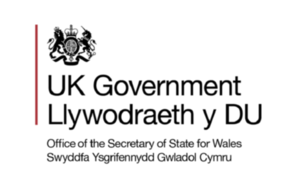As this is the first time that I have taken the floor in this initiative, let me start by thanking you for all the work you have done so expertly to shepherd this group towards consensus on a set of ambitious and wide-ranging proposals. Indeed, this initiative looks set to be one of the most successful outcomes of the next Ministerial Conference in June.
Sitting here in Geneva, it is sometimes easy to get swept-up in the granular detail of technical and complex negotiations. But we should all occasionally take a step back in order not to lose sight of why we are all gathered in this building in the first place. That is, we are here to deliver benefits for businesses, consumers and citizens across the globe.
And, to do that properly, we have a duty to advance our countries’ economies in their entirety – from the multinationals that employ hundreds of thousands right down to local businesses in small, isolated communities.
And, Mr Chair, I sit in Geneva representing a country where 99.9% of our companies are either a micro, small or medium-sized business.
These enterprises are responsible for employing over 17 million people in communities throughout every region of the UK, from the bustling heart of central London to the most rural of Scottish islands.
Combined, these businesses represent a £2.2 trillion turnover in the UK. They are also responsible for around one third of our exports in goods, and add over £100billion to our economy every year.
And if you look across the globe, the UK is not an outlier; in fact, MSMEs represent 95% of businesses worldwide.
We all know that MSMEs face specific challenges in cross-border trade, and are particularly vulnerable to disruption and unpredictability. And therein lies the significance of the rules-based multilateral trading system, with transparency at its core.
So the objectives of this group complement the rest of the work being carried out in this institution aimed at agreeing and implementing rules to foster predictability, from the regular Committees to the other Joint Statement Initiatives on e-commerce, services and investment.
We are at a pivotal time in the evolution of this organisation, with the Membership focussed on how best to modernise the WTO, to make it fit for the challenges and opportunities of the 21st century. And, as a critical pillar of both modern-day global business and society, increased MSME access to the multilateral system will ensure that smaller businesses will be better represented within our collective strategy to fostering global trade.
So, from the initial commitment made in Argentina right through until today, the UK has been, and will remain, an exceedingly strong supporter of this work, as have leading MSME trade associations in the UK, such as the Federation of Small Businesses. We look forward to working with all Members to identify opportunities to realise the objectives of the Buenos Aires Declaration.
Now, as MC12 approaches, we have a very real and tangible deadline to work towards. I call upon Members to do all that we can to find consensus, with the objective of ensuring that the 95% of businesses we collectively represent are able to better access the global trading system. Looking beyond June, given the enthusiastic discussions on the future work programme, there is already real appetite and ambition within this group to take a longer-term look at what more we can do to support our small businesses – so we are, in fact, only at the beginning of a new chapter.
So, working together with the other Members here today, the UK looks forward to joining the group in consensus at MC12, on a shared vision of how together we can better integrate micro, small and medium-sized businesses into the multilateral system.
Thank you, Chair.
